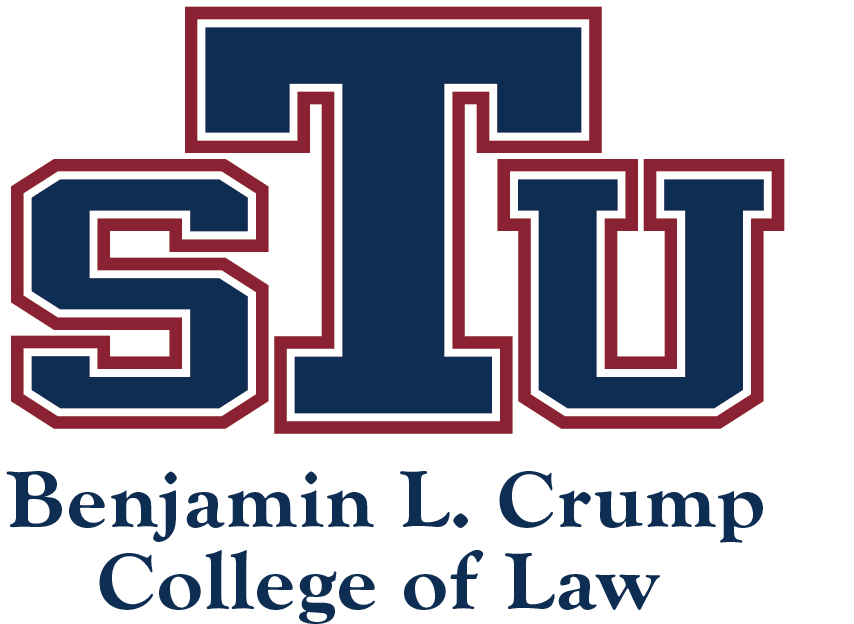ABA Required Disclosures
Benjamin L. Crump College of Law is approved by the Council of the Section of Legal Education and Admissions to the Bar of the American Bar Association, 321 North Clark Street, Chicago, IL 60654, 312-988-6738.
St. Thomas Law provides the information below in compliance with Standard 509 of the American Bar Association Section of Legal Education and Admissions to the Bar. The Standard 509 Report is available for download and viewing here >>> ABA Standard 509 Information Report.
Contents
- ABA Standard 509 Information Report
- Academic Calendar
- Academic Freedom
- Academic Requirements
- Admissions Data
- Conditional Scholarships
- Consumer Bar Passage Reports
- Curricular Offerings
- Curriculum Data
- Employment Outcomes
- Enrollment Data
- Equal Opportunity
- Faculty and Administration
- Financial Aid
- Library Resources
- Nondiscrimination
- Refund Policies
- Transfer Applicant Policy
- Tuition, Fees, and Living Costs
- Visiting Student Policy
Admissions Data
Fall 2024
Tuition, Fees, and Living Costs
Estimated 2024-2025 Cost of Attendance (COA)
J.D Program
LL.M. Program
J.S.D. Program
These are estimated figures and are subject to change without notice.
As per federal regulations consumer debt (e.g. mortgage, car loans, personal loans, and credit card) cannot be included in the Cost of Attendance.
On a case-by-case basis Cost of Attendance figures may be adjusted for reasonable educational related expenses.
Financial Aid and Scholarships
The College of Law’s Office of Financial Affairs recognizes that financing your legal education is an important investment in yourself, your future, and the communities you will serve. While the primary responsibility of financing your education rests with you and your family, we are committed to helping you meet your educational goals. To assist students with the costs of attending law school, St. Thomas University College of Law offers financial assistance to eligible law students mainly through the U.S. Department of Education’s Federal Direct Student Loan Programs up to the Cost of Attendance.
Scholarships
St Thomas Law School is pleased to offer a variety of merit scholarships to incoming and continuing students.
Incoming Students
Scholarships for incoming first year students with substantial promise are automatically awarded by the College Law’s Office of Admissions based on LSAT, prior academic record, and past service and experience. All applicants are considered for merit scholarships. No additional application is necessary. Transfer students are considered after completing a full year at St. Thomas Law. For additional information on specific award criteria, contact the Office of Admissions.
Some incoming scholarships may be renewed for the second and third years based on academic performance in the first year. All awards are made on a yearly basis for the Fall and Spring semesters only. Scholarship recipients are notified of the retention policy applying to their scholarships at the time of award. For retention data, click here.
Continuing Students
Students ranking in the top 25 percent of their class at the end of each academic year of full time study, whether they had incoming merit scholarships or not, can receive awards under the Upper Level Academic Scholarship Program. Awards range from $7,500 to $32,000 depending on academic performance. Students with incoming scholarships who qualify for a larger award under the Program will receive the greater of the two awards. All awards are made on a yearly basis for the Fall and Spring semesters only.
Donor Scholarships
Through the generosity of donors, St Thomas Law also offers several scholarships of varying amounts to continuing students. Criteria vary and can include need, leadership and service activities. For a list of these scholarships, click here.
Conditional Scholarships
Scholarship Retention Data
In compliance with Standard 509 of the American Bar Association we are pleased to provide you with the following Scholarship Retention Data Worksheet.
Prior to 2012, conditional scholarship retention required achieving a class rank in the top 25%. In 2012, the standards were relaxed to require a 2.6 GPA for scholarship retention for most awards.
In addition, students who rank in the top 25 percent at the end of the first year of full time study receive awards under the Upper Level Academic Scholarship Program. Awards range from $7,500 to $32,000 depending on academic rank. Over the past three years, a total of 84 incoming scholarships were increased in amount and an additional 54 scholarships were awarded under the Program.
Enrollment Data
Attrition Data
Consumer Bar Passage Report
- Consumer Bar Passage Report – 2025
- Consumer Bar Passage Report – 2024
- Consumer Bar Passage Report – 2023
- Ultimate Bar Passage Report – 2022
- First Time Bar Passage Report – 2022
- Consumer Bar Passage Report – 2021
Faculty and Administration
| Student faculty ratio | 10.9 to 1 |
Refund Policies
The effective date of withdrawal is the date on which a completed official withdrawal form is received by the Office of the College of Law Registrar; the percentage of credit will be determined by this date. The term begins on the first day of classes for that session, not the student’s first day of attendance. Refunds for students who have withdrawn are based on tuition only. Fees and deposits are non-refundable. If a student has been awarded financial aid, the financial aid programs from which the funds were disbursed will be refunded in accordance with the formula required by federal law. Tuition refunds are calculated as follows:
Refund checks will be processed within 14 business days after credit appears on student accounts pursuant to the U.S. Department of Education federal regulations. Refund checks will be deposited directly to students’ checking or savings accounts. All law students are expected to enroll in the University’s direct deposit program.
Refunds of room and board charges for resident students who withdraw (or are dismissed) from the College of Law are calculated by the Office of Campus Life. Unused portions of security deposits will be refunded upon the approval of the Housing Office.

